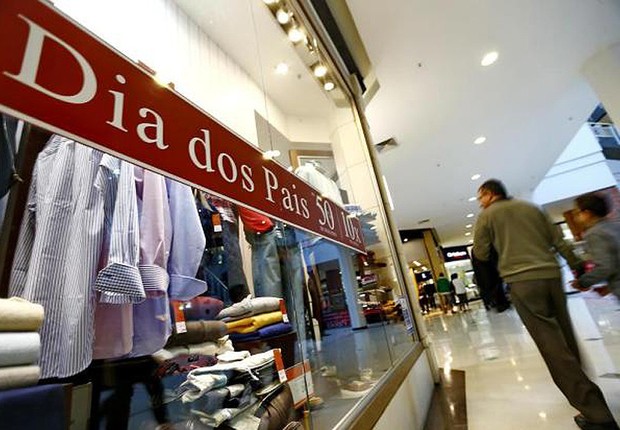On the second Sunday of August, Father’s Day is celebrated in Brazil. It is the least appealing date of the Brazilian retail marketing calendar. Sales in Brazilian malls in August are in the 9th position. Only men’s clothing and footwear categories notice sales growth: for these products, the business date means sales 25% higher than in the other months of the year.

Retailers decorate their window displays.
So the reason for consumers’ lack of enthusiasm for father’s day can be explained by socio-cultural issues as well as being so close to the July holidays.
Financially speaking, July is a high tourist season for Brazilians, which means higher travel costs. And then comes August, with all those vacation expenses on the credit card to be paid, turning gift shopping still less attractive.
However, there is a socio-cultural aspect that cannot be neglected: women head 40% of Brazilian families. This is the result of a cultural change that has valued the role of women in Brazilian society and family. Moreover, no war or epidemic in Brazil decimated the parents of the nearly 5 million children who do not have their father’s name on their birth registration.
These factors demonstrate that not all Brazilian consumers have close contact with their parents. And the father figure, in practice, may have been taken over by other family members such as uncles, grandparents, and even the mothers themselves.
Actually, as a business date, Father’s Day is less exciting than other retail marketing calendar dates. Shopping malls invest in promotions to attract visitors who may end up buying different product categories as well.
The eating-out sector perceives seasonality. However, unlike the celebration of Mother’s Day that traditionally crowds Brazilian restaurants, Father’s Day is just another Sunday but with higher attendance.
Advertising campaigns spread in 2019 focusing on Father’s Day in Brazil address the theme as carefully as it deserves: they bypass the old stereotype of the father rather distant from family members and never so close to children.
The Brazilian father figure has been portrayed in advertising campaigns as someone open to conversation with his children, and able to express his emotions.
These campaigns have been exploring the customers’ emotional expectations, and the largest part of the fathers has already realized that they should be more like that one advertised on Father’s Day.
Humor is the final seasoning of this recipe giving a more inclusive flavor to communication with bigger engagement in social media.
The date is an opportunity for brands to bring about a more joyful image: betting on the father that everyone wanted to have and be.
